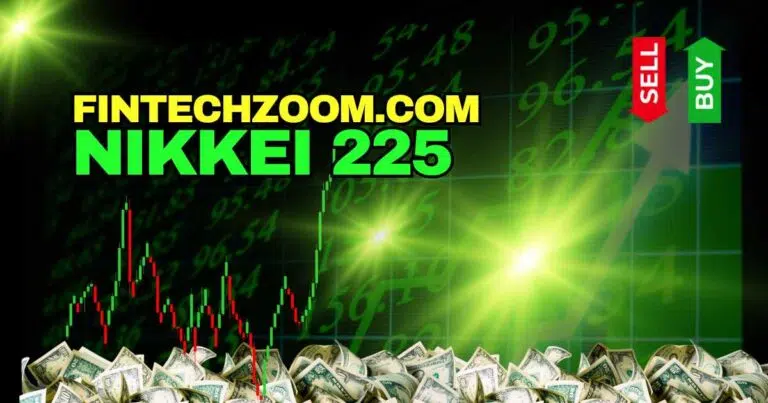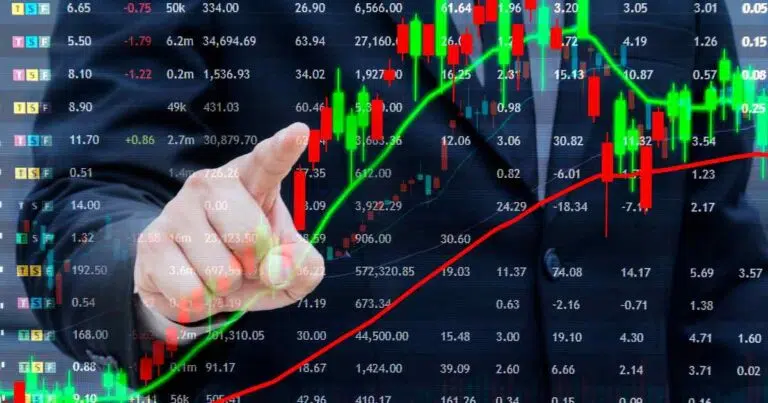INTRODUCTION
CNNFN STOCK FUTURES played a critical role in helping investors understand where markets were headed before the opening bell.
From 1995 to 2004, CNNfn reported real-time futures data, linking global events with Wall Street sentiment. Even though the channel closed, the keyword still attracts interest from traders and researchers.
This detailed guide explores CNNfn’s history, explains stock futures in depth, and provides actionable insights for modern investors using futures today.
THE RISE AND FALL OF CNNFN
CNNfn launched in December 1995 as CNN’s answer to CNBC. It promised 24-hour business news with a focus on stock markets and futures.
Programs like The Money Gang, Street Sweep, and Market Coverage made finance accessible to the general public. Futures coverage became one of its highlights.
Despite innovation, ratings struggled. By December 2004, CNNfn shut down. Its online platform evolved into CNN Money, and in 2018, it transformed into CNN Business, which continues futures reporting.
📌 CNNFN TIMELINE
| Year | Event | Impact |
|---|---|---|
| 1995 | CNNfn launched | First CNN financial network |
| 1998 | Website expanded | Futures reports online |
| 2001 | 9/11 coverage | Futures showed panic |
| 2004 | Shutdown | Shift to CNN Money |
| 2018 | CNN Business launched | Digital-first global platform |
WHAT ARE STOCK FUTURES
STOCK FUTURES are derivative contracts that let traders speculate on the future value of stock indexes.
Instead of owning stocks, investors agree on a future price at which buying or selling will occur. These contracts trade on exchanges like the Chicago Mercantile Exchange (CME).
Key futures include Dow Futures, S&P 500 Futures, Nasdaq Futures, and Russell 2000 Futures.
📌 KEY FUTURES INDEXES
| Index | Symbol | Tracks | Importance |
|---|---|---|---|
| Dow Futures | YM | 30 largest U.S. firms | U.S. market mood |
| S&P 500 Futures | ES | 500 major companies | Economy benchmark |
| Nasdaq Futures | NQ | Tech-heavy firms | Tech industry outlook |
| Russell 2000 Futures | RTY | Small-cap stocks | Risk sentiment |
HOW CNNFN REPORTED STOCK FUTURES
CNNfn provided pre-market futures analysis every morning. Anchors explained how futures were moving and connected them to overnight events.
Typical headlines included: “Dow Futures Down 150 After Fed Rate Signal” or “Nasdaq Futures Surge on Tech Earnings.”
This style of reporting simplified complex data, making futures understandable for retail investors.
GLOBAL FUTURES COVERAGE ON CNNFN
Unlike many networks, CNNfn tracked Asian and European futures alongside U.S. markets.
- Nikkei Futures (Japan): Indicators of global tech strength.
- FTSE Futures (UK): Early signals for European optimism or fear.
- DAX Futures (Germany): Linked to industrial performance.
By covering multiple continents, CNNfn showed how global markets influenced Wall Street futures.
HOW TO READ STOCK FUTURES LIKE A PRO
Futures are not guarantees but signals of market mood. Traders analyze them for potential direction.
Tips for Reading Futures:
- Compare with commodities like oil and gold.
- Track overnight Asia and Europe moves.
- Look for economic announcements scheduled for the day.
📌 FUTURES SIGNAL EXAMPLES
| Futures Move | Market Open | Meaning |
|---|---|---|
| +200 Dow | Bullish | Optimism, good earnings |
| -150 S&P | Bearish | Weak economy |
| Flat | Neutral | Investor caution |
| Limit Down | Panic | Market meltdown fear |
ECONOMIC EVENTS DRIVING FUTURES
Futures move instantly when economic news breaks. Key triggers include:
- Federal Reserve interest rate decisions.
- Jobs data (Non-Farm Payrolls).
- Inflation reports (CPI, PPI).
- Geopolitical tensions or wars.
For example, during the 2003 Iraq War, oil prices surged and Dow futures plunged, signaling investor anxiety.
CASE STUDIES OF CNNFN STOCK FUTURES
Futures reporting has been crucial during crises.
- Dot-com bubble (1999–2000): Nasdaq futures showed huge swings before the crash.
- 9/11 attacks (2001): Futures collapsed, indicating panic before markets reopened.
- 2008 financial crisis: S&P 500 futures hit “limit down,” warning of recession.
- COVID-19 pandemic (2020): Circuit breakers were triggered as futures collapsed.
📌 FUTURES LESSONS
| Event | Futures Signal | Market Impact | Lesson |
|---|---|---|---|
| Dot-com | Volatile Nasdaq futures | Tech bubble burst | Overhype shows in futures |
| 9/11 | Futures crash | Panic selling | Futures reflect global fear |
| 2008 | Limit-down | Global meltdown | Futures warn before collapse |
| COVID-19 | Circuit breakers | Market halt | Futures expose systemic risk |
INVESTOR STRATEGIES USING FUTURES
Different investors use futures in different ways:
- Day Traders: React to pre-market futures swings.
- Swing Traders: Use weekly futures trends to forecast market direction.
- Institutions: Hedge long stock positions with short futures.
COMMON MISTAKES TO AVOID
- Overreacting to single futures moves.
- Trading without proper risk management.
- Ignoring global futures while focusing only on U.S. indexes.
BEYOND STOCK FUTURES
CNNfn also reported on commodities and currency futures.
- Oil Futures: Inflation and energy costs.
- Gold Futures: Safe-haven asset in crises.
- Currency Futures: Dollar, Euro, Yen outlook.
In today’s market, Bitcoin and Ethereum futures are the modern evolution of what CNNfn started.
DIGITAL TRANSFORMATION OF FUTURES REPORTING
CNNfn relied on cable TV tickers. In contrast, CNN Business offers real-time dashboards, apps, and AI-powered analysis.
Investors now receive instant mobile alerts about futures, something impossible during CNNfn’s era.
CHALLENGES IN INTERPRETING FUTURES
Futures can be misleading if taken alone. A strong futures signal can reverse once trading begins.
Media hype can also exaggerate panic. Investors must balance futures data with other economic indicators.
THE FUTURE OF FUTURES REPORTING
The next generation of futures analysis will involve AI forecasting, sentiment tracking from social media, and 24/7 digital dashboards.
CNN Business and fintech apps will make futures reporting even more interactive and predictive.
CONCLUSION
CNNFN STOCK FUTURES reporting changed financial journalism. It gave ordinary people access to tools once reserved for Wall Street.
Today, CNN Business continues the mission with live updates, global analysis, and new markets like crypto futures.
The legacy of CNNfn proves one thing: futures are not just numbers—they are the heartbeat of global investor psychology.
FAQs About Cnnfn Stock Futures
Q1: WHAT WERE CNNFN STOCK FUTURES?
They were pre-market futures reports shown by CNNfn between 1995–2004.
Q2: DOES CNN STILL REPORT FUTURES?
Yes, CNN Business provides real-time updates.
Q3: CAN FUTURES PREDICT MARKET CRASHES?
They signal fear or optimism but are not 100% predictive.
Q4: WHERE CAN I CHECK FUTURES NOW?
CNN Business, Bloomberg, Yahoo Finance, and MarketWatch.
Q5: ARE FUTURES SUITABLE FOR BEGINNERS?
Yes, as indicators. But direct futures trading requires experience.
GLOSSARY OF KEY TERMS
- DERIVATIVE: Asset based on another asset’s value.
- E-MINI FUTURES: Smaller contracts for retail traders.
- LIMIT DOWN: Halt due to steep futures decline.
- HEDGING: Protecting against losses with futures.
- CIRCUIT BREAKER: Market halt to prevent crashes.





